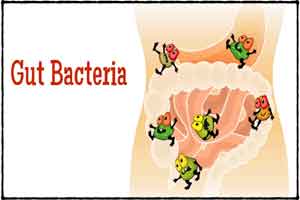- Home
- Editorial
- News
- Practice Guidelines
- Anesthesiology Guidelines
- Cancer Guidelines
- Cardiac Sciences Guidelines
- Critical Care Guidelines
- Dentistry Guidelines
- Dermatology Guidelines
- Diabetes and Endo Guidelines
- Diagnostics Guidelines
- ENT Guidelines
- Featured Practice Guidelines
- Gastroenterology Guidelines
- Geriatrics Guidelines
- Medicine Guidelines
- Nephrology Guidelines
- Neurosciences Guidelines
- Obs and Gynae Guidelines
- Ophthalmology Guidelines
- Orthopaedics Guidelines
- Paediatrics Guidelines
- Psychiatry Guidelines
- Pulmonology Guidelines
- Radiology Guidelines
- Surgery Guidelines
- Urology Guidelines
Diet rich in Choline drives thrombosis risk: AHA study

Consuming too much choline, a nutrient sold in over-the-counter dietary supplements, can boost the risk for blood clots, researchers warn.
That’s because bacteria in the intestines interact with choline to produce a compound that encourages platelets to clump together and form clots.
Choline is found in a variety of foods including meat, eggs and milk. It’s what’s known as an essential nutrient, which means the body can’t make enough choline on its own and so it must be provided in food.
But “unless prescribed by your doctor, avoid supplements with choline,” said senior study researcher Dr. Stanley L. Hazen of the Cleveland Clinic in Ohio, in a statement.
Hazen and colleagues had previously shown that bacteria in the intestines interact with choline and other dietary nutrients to produce a substance called TMAO, and they linked high levels of TMAO in the blood to an increased risk of cardiovascular diseases.
Also, in studies in animals, they linked higher levels of TMAO to a higher risk for blood clots.
Their latest research, reported in the American Heart Association’s journal Circulation, shows that choline in food can affect blood clotting risk in humans, and in some cases, that risk can be minimized by taking low-dose aspirin.
In the current study, they gave oral choline supplements to 18 volunteers and then measured TMAO levels, along with the responses of platelets, tiny particles involved in clotting.
After taking the supplements for up to two months, participants had more than 10-fold increases in blood levels of TMAO. The tendency of their platelets to clump together and form clots was also significantly increased, in direct proportion to the increases in TMAO levels.
Aspirin, which reduces the stickiness of platelets, reduced both the increases in TMAO and the increases in platelet clotting associated with choline, but it didn't completely eliminate them, the researchers found.
The findings are of particular concern in people at high cardiovascular risk, whose increased risk of blood clots may not be overcome by low-dose aspirin. The researchers recommend further study.
They also say it's worth exploring whether low-dose aspirin is beneficial in otherwise healthy people with high TMAO in the blood although at this point, they can’t explain why the aspirin seemed to bring down TMAO levels.
Dr. Herbert Tilg from Medical University Innsbruck, Austria, who has studied the link between gut microbes and blood clots, told Reuters Health by email, “This and earlier studies show that we now definitely have to consider dietary aspects in this context, i.e., diet drives thrombosis risk.”
“These associations are totally new and unexpected: a link between diet gut microbiota and thromboembolic events,” he said.
“They are extremely relevant for the public and in medicine,” given that clots are “very, very common” and can be fatal, he said.
Tilg added that “preventive strategies are needed, and probably aspirin is not sufficient. This needs further studies.”
By Will Boggs MD

Disclaimer: This site is primarily intended for healthcare professionals. Any content/information on this website does not replace the advice of medical and/or health professionals and should not be construed as medical/diagnostic advice/endorsement or prescription. Use of this site is subject to our terms of use, privacy policy, advertisement policy. © 2020 Minerva Medical Treatment Pvt Ltd